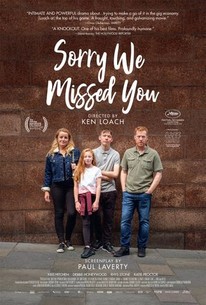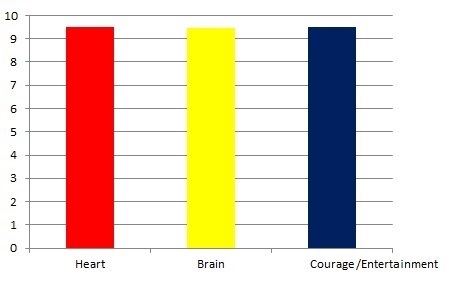
Main Page
Alphabetical Menu
Chronological Menu
|
Sorry We Missed You  Ricky Turner (Kris Hitchen) and his wife, Abbie (Debbie Honeywood), have been struggling to make ends meet ever since the financial crash of 2008 when Ricky lost his job as in the building trade and his home's mortgage. They have two children, 16-year-old Seb (Rhys Stone) and 11-year-old Liza James (Katie Proctor). Ricky finds a new job in the gig economy as a delivery driver, but the only way he can afford to buy a van for his deliveries is by selling Abbie's car. His manager, Maloney (Ross Brewster), makes it clear to him from his very first day on the job that he must not lose or damage the expensive delivery scanner because if he does, he'll have to pay for it himself. Abbie works as a home care nurse who assists many elderly patients at their homes with no overtime pay and must pay for her own traveling expenses. Both Ricky and Abbie work long hours with very little pay while trying their best to keep their family afloat. Director Ken Loach and screenwriter Paul Laverty do a great job of turning quotidian events into engrossing and meaningful moments in the lives of Ricky, Abbie, Seb and Liza James. Within the first few minutes, you learn about Ricky's new job and the relationship between him and his family members. Ricky and Abbie spend so much time working that they rarely have enough time to spend with their kids or to even eat dinner together at home. Seb cuts school and spends his time spraying graffiti with his friends instead. He angers his dad when he admits that he paid for the cans of graffiti by selling his winter coat. There's no voice-over narration, musical score nor any flashbacks, so the story unfolds before your eyes as though you were watching a documentary. You learn about Ricky's past and how he met Abbie through photographs that Abbie looks at. Not a single scene feels inauthentic or contrived, although there's some heavy-handed dialogue, i.e. when Maloney gives a long speech to Ricky in office that Maloney seem like a cold, condescending, one-dimensional jerk when he's merely a slave of capitalism, the film's silent villain. Scene after scene, you're reminded that Ricky and Abbie are stuck in an economy that's cold, unforgiving and, ultimately, very dehumanizing. They're frustrated and angry which they have every right to be, but Ricky has a tendency to show his anger and to curse in front of his family while Abbie bottles her anger with the exception of two scene where she finally vents her pent-up anger. Despite how many dehumanizing events Ricky and Abbie go through, there are surprisingly warm and tender moments of compassion to be found every now and then, i.e when Abbie agrees to cut dinner time short with her family short on a Saturday night to tend to an elderly patient of hers. Seb suggestions that the entire family should go together in Ricky's van to get to Abbie's patient instead of letting Abbie take a cab there. Ricky agrees, and you briefly notice that they're all having a great time in the van while singing, although it's an ephemeral moment. Upon reaching her patient, Abbie's interactions with her are filled with genuine love, warmth and compassion. She's a good person at heart and the same can be said about Ricky, Seb and Lisa James each of whom is going through their own innate struggles. The natural performances by everyone onscreen adds to the sense of realism that the film achieves so effectively. You won't feel the wheels of the screenplay nor the performances turning; this is far from a Hollywood film. Kudos to Loach and Laverty for shedding a light on the harsh truths about the gig economy and for humanizing those who suffer from it. Sorry We Missed You offers no easy answers or solutions to a complex human rights issue. At a running time of 102 minutes, it's an emotionally resonating, eye-opening and unflinching slice-of-life.  Main Page Alphabetical Menu Chronological Menu ______________________________________________________ |
The NYC Movie Guru
themovieguru101@yahoo.com
Privacy Policy